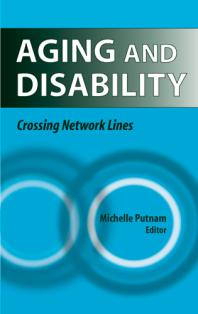Disability is a complex phenomenon, reflecting an interaction between features of a person's body and mind and features of the society in which they live. A disability can occur at any time in a person's life; some people are born with a disability, while others develop a disability later in life. It can be permanent, temporary or episodic. Disability can steadily worsen, remain the same, or improve. It can be very mild to very severe. It can be the cause, as well as the result, of disease, illness, injury, or substance abuse.
Reflecting this complexity are the different approaches to understanding the experience of disability. According to the traditional, bio-medical approach, disability is viewed as a medical or health problem that prevents or reduces a person's ability to participate fully in society. In contrast, the social approach views disability as a natural part of society, where attitudes, stigma and prejudices present barriers to people with disabilities, and prevent or hinder their participation in mainstream society.
Definition taken from Government of Canada Federal Disability Reference Guide
The most widely accepted definition is from the World Health Organization
Disabilities is an umbrella term, covering impairments, activity limitations, and participation restrictions. An impairment is a problem in body function or structure; an activity limitation is a difficulty encountered by an individual in executing a task or action; while a participation restriction is a problem experienced by an individual in involvement in life situations.
 Aging and disability : crossing network lines
by
Michelle Putnam
Aging and disability : crossing network lines
by
Michelle Putnam
 Disability: The Basics
by
Tom Shakespeare
Disability: The Basics
by
Tom Shakespeare
© , University of the Fraser Valley, 33844 King Road, Abbotsford, B.C., Canada V2S 7M8

